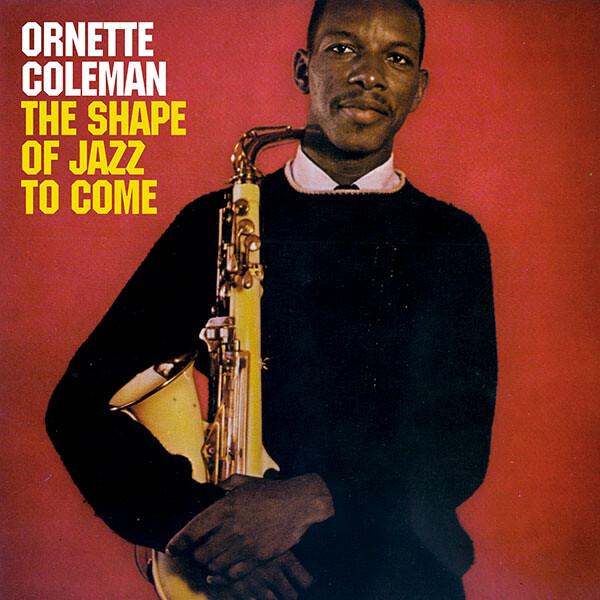The earth moves against the world. And today the response of the world is clear. The world answers in fire and flood. The more the earth churns the more vicious the world’s response. But the earth still moves. Tonika Sealy Thompson might call it a procession. The earth’s procession is not on the world’s calendar. It is not a parade on a parade ground. It is not in the world’s teleology. Nor is the procession exactly a carnival played to mock or overturn this parade, to take over its grounds. A procession moves unmoved by the world. The earth’s procession around which all processions move struts in the blackness of time. And the earthen who move around, and move in earth’s procession, move, as Thompson says, like Sisters of the Good Death in Bahia move, in their own time out of time. God is so powerful in this procession that he cannot exist. Not because he is everywhere in the procession but because we are. We are the moving, blackened, blackening earth. We turn each other over, dig each other up, float each other off, sink down with each other and fall for each other. We move in earthen procession swaying to base even as its beat alerts the world’s first responders. These responders are called strategists. Strategy responds to the constant eruption of the earth into and out of the world. The response takes the form of a concept upon which form has been imposed, which is then imposed upon the earthen informality of life.
Some say it was Alfred Sohn-Rethel who first figured out how the concept was, in this interplay of formation and enforcement, stolen into ownership, abducted and abstracted, weaponized in strategy. He said the abstraction of exchange, and later the abstraction of money, led us to think in the suspension of time and space, the suspension of materiality, and this led to the propriation of the concept. But Sohn-Rethel only picks up the trail of this theft with the thief, the individual, already formed and ready for the strategized and immaterial concept, already formed and readied by it. He wants to convict this thief. We want to take him home.
We want to take him out ‘cause out is home. We’re at home in the prophetic churning of the earth on the move, the round run of the fugitive, visitation in our eyes, refuge on our tongues. Our unholy commune with those who keep moving and stay there, who keep out before they can be kept out. That’s why the hellhounds of strategy are on our trail. They think they got the scent of our leader. But our leader is not one. Let’s call her Ali, after Pasolini’s “Profezia.” Ali Blues Eyes. Pasolini thought she was coming in the procession from Africa to teach Paris how to love, to teach London brotherhood, to march east with the red banners of Trotsky in the wind. But she never arrived because we went to chant in Palermo, fast in Alabama, meditate in Oaxaca. So Ali became Tan Malaka and we went to the fête, the jam, the study group.
***
Ever since capital witnessed Lenin doing it better, capital has been running from strategy. Today when capital deploys a concept, everybody is supposed to buy it but no one is supposed to believe it. Capital might call this strategic universality. Or it might not call it anything because capital is not concerned with the dignity or the sovereignty of the concept. The concept served its purpose. And its main purpose now is to get out of the way of logistics or to become logistics’ conduit. Its propriety and its proprietary commitments prepare it to be bought and sold into a roughened, airy thinness. Today’s concepts in circulation are not the abstraction of or from the commodity; they are commodities and cannot, in their propriety and proprietary form, be used against the commodity-form. Their form is the air the commodity expels, containerized, as all but impalpable units of exhaust(ion). They are just another strategy. And strategy, though it is not abstract, does not really matter, either. What matters is logistics. Logistics, not strategy, provides the imperative. Strategy just provides the friction. Logistics moves the concept around in the circuits of capital. The world’s only argument against the earth is logistical. It must be done. The earth’s movement must be stopped, or contained, or weakened, or accessed. The earthen must become clear and transparent, responsible and productive, unified in separation. This is not a matter of deploying the concept, strategically or otherwise, but of force, forced compliance, forced communication, forced convertibility, forced translation, forced access. Capital does not argue, though many argue with it.
Capital just likes disruption. Capital’s been running from strategy, running toward logistics, running as logistics, running into the arms of the algorithm, its false lover who is true to it. All that’s left of strategy is leadership, the command you find yourself in after logistics takes over, when the unit comes into its own. For capital, strategy is a just a form of nostalgia, or proof that it has nothing to fear from its enemies who embrace it, proof that they are not enemies. They are the commanded, repeating commands. They call it policy. Ali was never in command. She’s just made up of the hungry. She’s just made up of plans.


Film still from Pier Paolo Pasolini’s 1967 movie Oedipus Rex.
In his desire to make capital claim its materiality Marx took Ali’s. Tried to make her a leader. But Ali’s prophesy was too crowded, too black, too late, too loud. Submerged in capital, the earthen buried strategy and detonated it. The first respondents told us we need to learn to be more strategic. We will learn to need strategy, they say. But we know strategy is the delivery system for a concept, collateral and deployed. Indeed, strategy is itself just a concept in the world, the universal approach. But not even capital cares. Capital only wants things to run smoothly, which is to say universally. This is what disruption is for, and leadership, and open innovation. Capital does not fear strategy. It can barely remember it from the days of worldly concepts. Marx made capital a concept. Lenin saw his chance. So capital learned to be material again. No, capital doesn’t fear strategy. Capital fears the earth’s procession. Ali’s blues black saint eyes.
***
God has everything but faith; this is why He so brutally requires ours. He looked around and was so lonely He made Him a world. Rightly, He didn’t believe in himself and, wrongly, He didn’t believe in us. We were neither sempiternal nor parental, just generative and present, like a wave. In His case, (over)seeing was not believing. Faithlessness such as His demands a certain strategic initiative. Ever get the feeling we’re being watched? Well, that’s just God’s property, the police, the ones who proclaim and carry out His strategic essentialism. They have some guns that look just like microphones. Sometimes they write books. They tell us what we need. Often, they are us. We’re all but them right now but we’re gonna try to fade back in and out as quickly as possible. Mattafack, let’s sound it out, let’s talk it over. If you could start talking over us right now we’d appreciate it.


Cover art for Ornette Coleman’s third studio album The Shape of Jazz to Come (1959).
Unremitting predication—what if this is our existence, given in and as a practice of chant, a ceaseless and ceaselessly inventive liturgy? You could call it the historicization of a veridical protocol in which the distinction between falsity and transformation, untruth and unchecked differentiation, is kept sacred. And it’s not even vulgarly temporal in the way that seeing aspects, as Wittgenstein describes it, implies a timeline—first it was a duck and then it was a rabbit. There is, in the simultaneity of “it is a duck” and “it is a rabbit,” a kind of music. Ornette Coleman calls it “harmonic unison” and we might follow him while also deviating from him but in and through him by calling it anharmonic unison, a differential inseparability. When essence leaves existence by the wayside, what ensues, for essence, is existential loneliness. What if the problem of the concept is the problem of separation? And what is the relationship between conceptual separation and individuation? What’s at stake is the convergence of the body and the concept that is given in the transcendental aesthetic. Individuation and completeness follow. On the other hand, (en)chanted, (en)chanting matter, canted blackness (where flesh and earth converge beyond the planetary, in and as non-particulate differentiation). It’s not about a return to some preconceptual authenticity so much as matter’s constant aeration, its constant turning over, its exhaustion and exhaustive sounding, its ascentual and essentially and existentially sensual descent. The problem is the separation of the concept and our subsequent envelopment within it—this horrific sovereignty of the concept and its variously hegemonic representations. Did the invention of sovereignty require the concept or did the concept already bear the danger of sovereignty’s brutal representation(s)?
Maybe the problem is the separability, the self-imposed loneliness-in-sovereignty, of the concept and its representations (as embodiment or individuation or subject or self or nation or state). How do we make sure that the concept still matters? How do we refuse its dematerialization, even if/when that dematerialization seems to have allowed the production of new knowledge, of new critical resources? This is a question that is explicitly for Marx. When the senses become theoreticians in their practice, in communism, which is here, buried alive, they ask questions of the one who brilliantly, and for us, both charts and re-instantiates the dematerialization that capital pursues in the separation of labor power from the flesh of the worker or of profit from that flesh in its irreducible entanglement with (the matter of) earth. Was that an instance of “strategic thinking”? If so, it demands that we rethink strategy. Is there a way to think the relation between strategy and improvisation that alloys the maintenance of a difference between immediacy and spontaneity? There is a deliberate speed of improvisation that is not simply recourse to the preconceptual. Maybe what’s at stake is the difference between movement and a movement or the movement.
What’s at stake is the trace of perfume that has been released. It is changed in being-sensual, depurified in being breathed. There is a socialization of essence that is given in and as sociality itself and maybe this is what Marx was talking about under the rubric of sensuous activity, but against the grain of his adherence to a logic and metaphysics of (individuation in) relation. All this makes you wonder what the difference is between strategy and faith. When we say difference, here, what we really mean is caress—how strategy and faith rub up against one another in a kind of haptic eclipse, or auditory submergence, or olfactory disruption, or gustatory swooning of the overview. In this regard, strategic essentialism is something like the soul feast’s homiletic share or, more precisely, the ana- and anicharismatic sharing of the homiletic function in and by the congregation. When we say preach when we hear preaching we be preaching. It’s like a conference of the birds—a constant rematerialization and proliferation of the concept; a constant socialization of the concept rather than some kind of expedient decree by some kind of self-appointed consultant who finds himself to have been gifted with the overlooking and overseeing power of the overview. The consultant’s capture and redeployment of strategic essentialism is faithless and lonely. It exudes the sovereign religiosity of the nonbeliever. Let me tell you what we need or don’t need, it says, always doubling down on you whenever it says “we” with a heavy, I/thou imposition, a charismatic boom that somehow both belies and confirms its sadness in the serial de-animation of its personal relationships, which is felt by us as the toxic solace of being spoken to and of by the one who is supposed to know. So maybe it’s just a matter of where strategic essentialism, strategic universalism, or the concept, in general, are coming from. Unremitting predication bears a boogie-woogie rumble, where deferred dream turns to victorious rendezvous. Down here underground, where the kingdom of God is overthrown and out of hand and hand to hand, there’s a general griot going on. His (and that of any of his representatives, the ones who must be representing us but can’t) strategy is exhausted and surrounded by our plans.
***
There’s a movement of the earth against the world. It’s not the movement. It’s not even a movement. It’s more like what Tonika calls a procession, a holy river come down procession, a procession in black, draped in white. The earth’s procession sways with us. It moves by way of a chant. It steps in the way of the base, in the way of the dancing tao. It bows to the sisters of the good foot, carrying flowers from Caliban’s tenderless gardens. The earth is on the move. You can’t join from the outside. You come up from under, and you fall back into its surf. This is the base without foundation, its dusty, watery disorchestration on the march, bent, on the run. Down where it’s greeny, where it’s salty, the earth moves against the world under the undercover of blackness, its postcognitive, incognitive worker’s inquest and last played radio.


A selection of perfume is featured in this illustration from a Soviet commodity catalog published between 1956-61.
The earth is local movement in the desegregation of the universal. Here’s the door to the earth with no return home and who will walk through it is already back, back of beyond, carried beyon’, caribbean. Pasolini said Ali Blue Eyes will walk through the door over the sea leading the damned of the earth. Ali Blues Eyes. But we won’t teach Paris to love. We can’t show brotherhood to London. Ali took Trotsky’s red banners and made something for us—a handkerchief, a bandage, a kiss.


